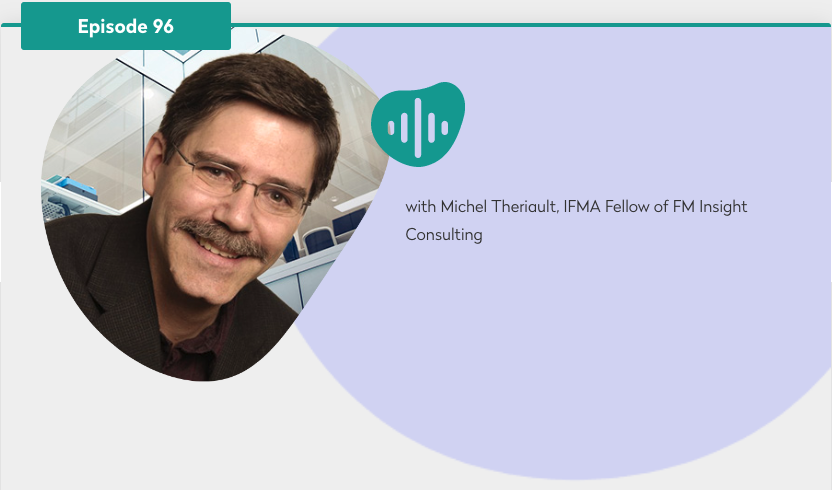
In episode 96 of Asset Champion, host Mike Petrusky speaks with IFMA Fellow Michelle Terrio about the power and potential of reliability centered maintenance (RCM) for facility management. They discuss the origins of the maintenance strategy, where and when it works best, and how you can successfully implement it for facility management. Terrio explains why sometimes the best maintenance move is doing nothing at all.
Agenda
- Who is Michelle Terrio, IFMA Fellow
- What are the origins and importance of RCM
- How RCM can be implemented in facility management
- How to start using RCM in your organization
What you need to know: Facility and maintenance takeaways
Takeaway 1: The importance of learning from mistakes
The professional journey often includes making mistakes and learning from them, Terrio explains, and he shares how his valuable insights have often come from learning from past mistakes and adapting his approach. “I’ve been dealing with so many different people through that that I’ve learned more now as a consultant than I ever knew before. And part of that is making a lot of mistakes and now realizing I should have done things,” says Terrio. He also emphasizes the importance of adapting and learning in an ever-changing environment, especially in facility management where new challenges constantly arise.
Terrio’s effort to share his experiences and insights reflects his commitment to guiding the next generation of facility managers. “Every time we fall down, we get to get up and learn something from it.” He feels a mindset of continuous learning and growth is integral to success in the field.
Takeaway 2: The need for business and leadership skills in facility management
Facility management professionals should hone their business and leadership skills to be more effective and efficient in their roles, including being able to convince higher-ups to provide the resources needed for their work, Terrio explains. “Fundamentally, that’s the challenge we have as I see it going forward in our industry.” He also stresses that facility management professionals need to “sell ideas,” and in order to do so, they need to have good business and leadership skills.
Takeaway 3: The relevance of reliability centered maintenance in facility management
RCM is a practice that originated from the airline industry, and while it may not be widely used in facility management, its principles can still be applied. Terrio gives an overview of RCM and explains how it can be used to maintain the functionality of assets in facility management.
“Reliability centered maintenance is essentially finding the best maintenance strategy to maintain the functionality of your assets,” he says.
When facility managers are first implementing RCM, Terrio encourages them to “Start with the most important buildings, the most important equipment, and the functionality that has the biggest impact. You don’t have to do everything. Start there and then move on to the next level of things.” This approach can help facility managers manage their assets more effectively and efficiently.
Asset management insights
- RCM started in the airline industry and has been mostly applied in manufacturing and industrial sectors due to the operations’ high criticality.
- RCM is how you decide which maintenance strategy should be used and how it should be applied.
- Although it has its roots in maintenance, RCM can be applied in facility management by focusing on the most important buildings and equipment and the functionality that has the biggest impact.
- It is important for facility managers to set aside time to start looking at RCM and applying it. Start with the most important aspects and gradually work from there.
Listen to the full podcast here.
Go deeper. Dive into more episodes of Eptura’s Asset Champion podcasts.








